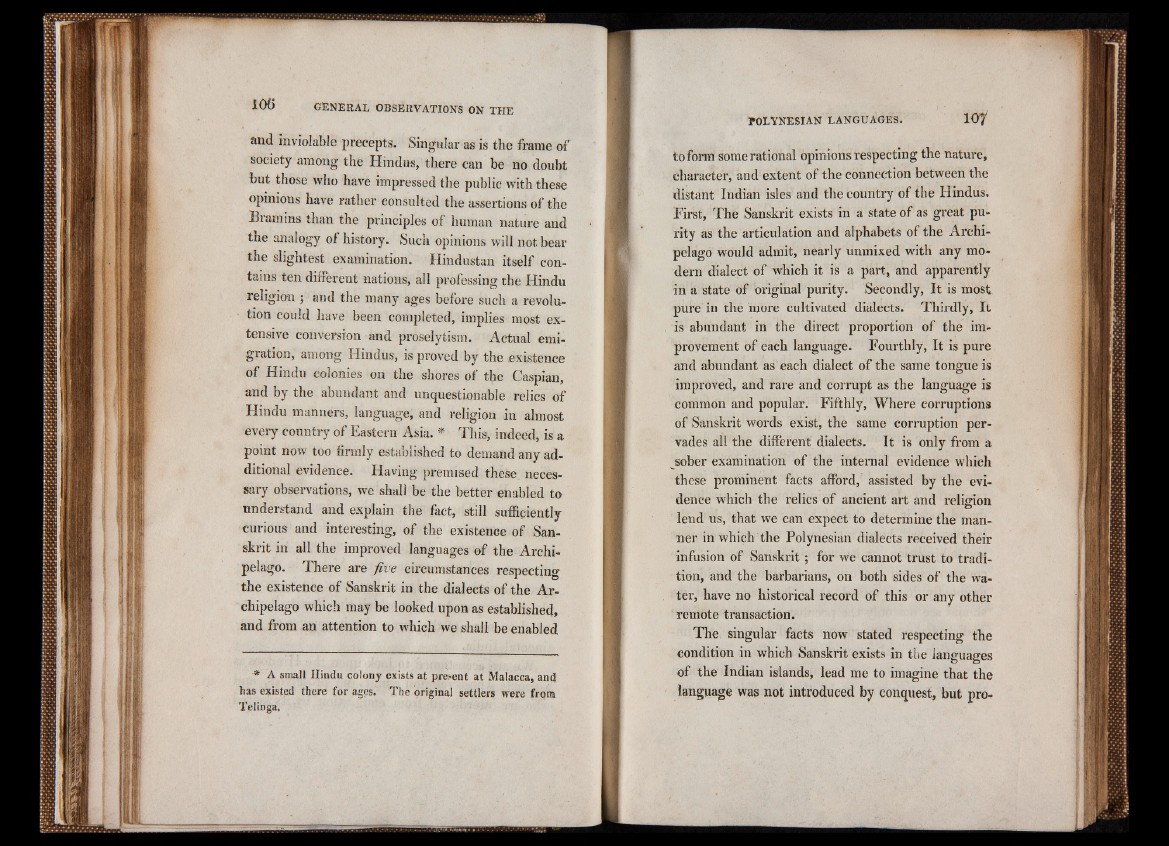
and inviolable precepts. Singular as is the frame of
society among the Hindus, there can be no doubt
but those who have impressed the public with these
opinions have rather consulted the assertions of the
Bramins than the principles of human nature and
the analogy of history. Such opinions will not bear
the slightest examination. Hindustan itself contains
ten different nations, all professing the Hindu
religion ; and the many ages before such a revolution
could have been completed, implies most extensive
conversion and proselytism. Actual emigration,
among Hindus, is proved by the existence
of Hindu colonies on the shores of the Caspian,
and by the abundant and unquestionable relics of
Hindu manners, language, and religion in almost
every country of Eastern Asia. * This, indeed, is a
point now too firmly established to demand any additional
evidence. Having premised these necessary
observations, we shall be the better enabled to
understand and explain the fact, still sufficiently
curious and interesting, of the existence of Sanskrit
in all the improved languages of the Archipelago.
There are five circumstances respecting
the existence of Sanskrit in the dialects of the Archipelago
which may be looked upon as established,
and from an attention to which we shall be enabled
* A small Hindu colony exists at present at Malacca, and[
has existed there for ages. The original settlers were from
Telinga,
to form some rational opinions respecting the nature,
character, and extent of the connection between the
distant Indian isles and the country of the Hindus.
First, The Sanskrit exists in a state of as great purity
as the articulation and alphabets of the Archipelago
would admit, nearly unmixed with any modern
dialect of which it is a part, and apparently
in a state of original purity. Secondly, It is most
pure in the more cultivated dialects. Thirdly, It
is abundant in the direct proportion of the improvement
of each language. Fourthly, It is pure
and abundant as each dialect of the same tongue is
improved, and rare and corrupt as the language is
common and popular. Fifthly, Where corruptions
of Sanskrit words exist, the same corruption pervades
all the different dialects. It is only from a
sober examination of the internal evidence which
these prominent facts afford, assisted by the evidence
which the relics of ancient art and reliogion lend us, that we can expect to determine the manner
in which the Polynesian dialects received their
infusion of Sanskrit; for we cannot trust to tradition,
and the barbarians, on both sides of the water,
have no historical record of this or any other
remote transaction.
The singular facts now stated respecting the
condition in which Sanskrit exists in the languages
of the Indian islands, lead me to imagine that the
language was not introduced by conquest, but pro